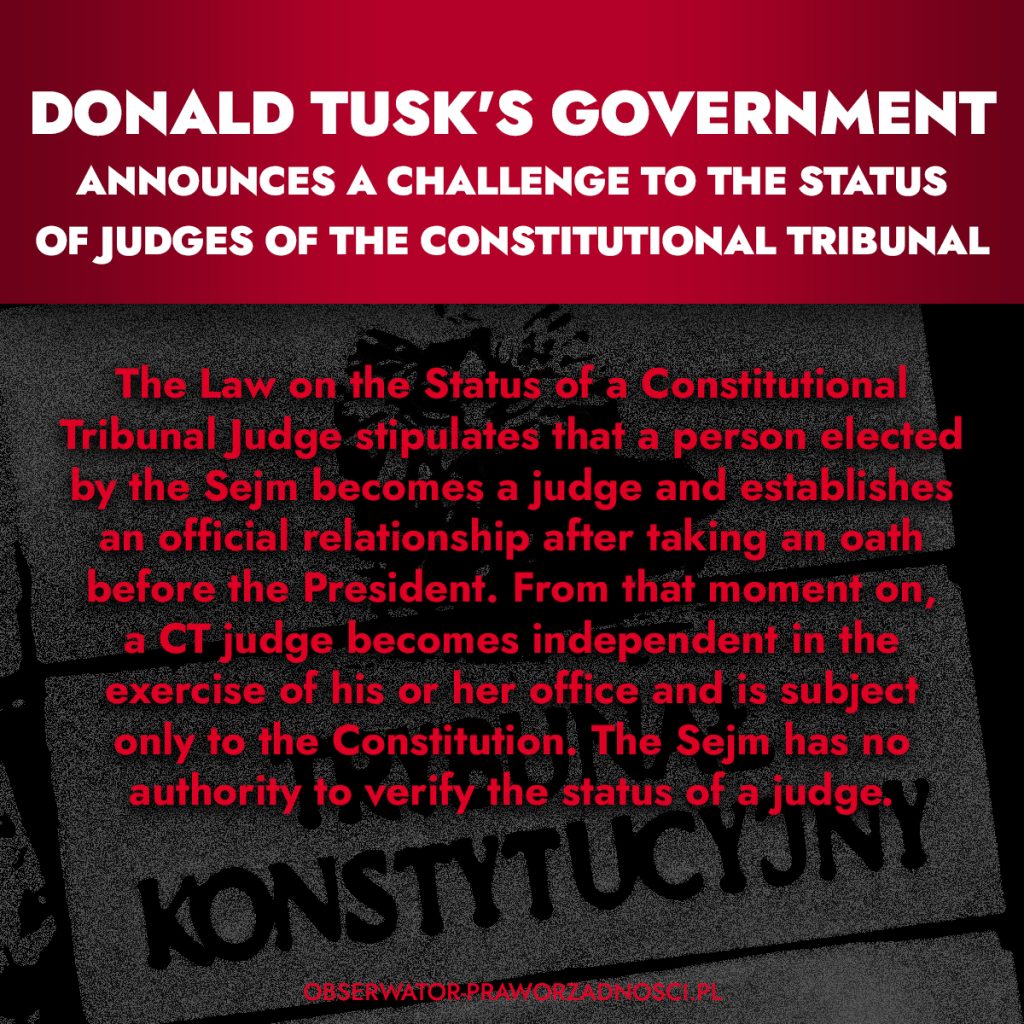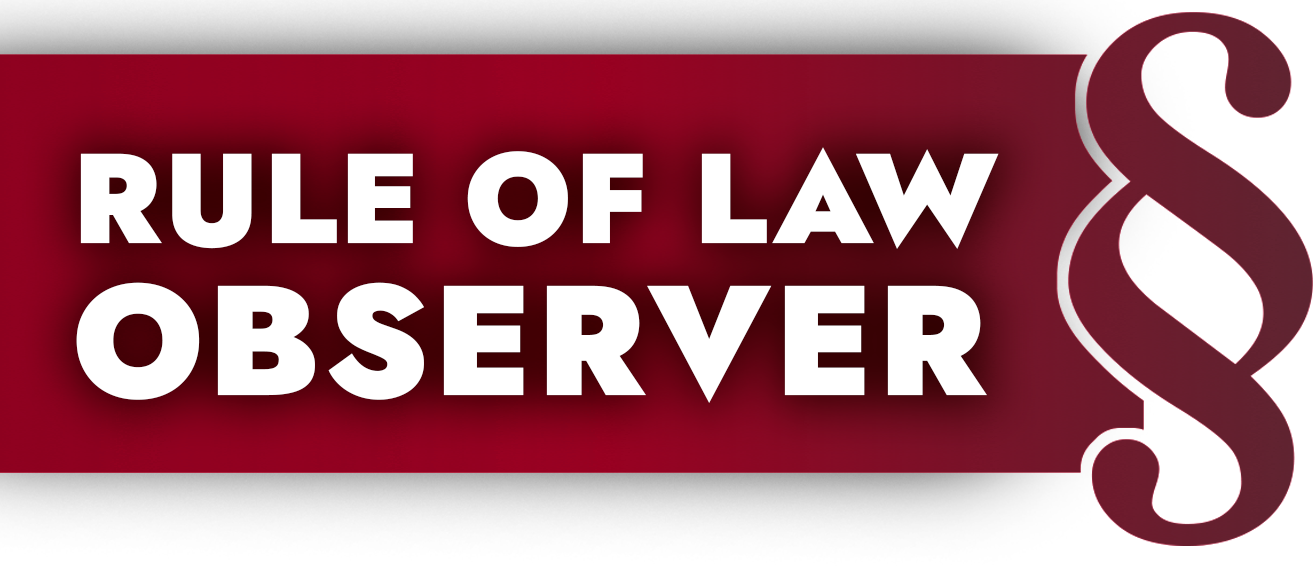The Constitutional Tribunal is a judicial authority with the purpose of, among other things, assessing the compliance with the Constitution of other normative acts and eliminating unconstitutional acts from the legal system. Judges of the Constitutional Tribunal are elected by the Sejm and then take an oath before the President. The government of Donald Tusk, citing rulings of the European Court of Human Rights, which do not constitute sources of law in the Polish legal order, announced that it will question the status of some of the judges of the Constitutional Tribunal and invalidate the rulings issued by them. This is to be done through a resolution of the Sejm, which is an act which also has no universally binding force and as a rule, is not subject to constitutional control. The status of a Constitutional Tribunal judge is regulated by the statute, which stipulates that a person elected by the Sejm becomes a judge and assumes an official capacity after taking an oath before the President. From that moment on, a judge of the Constitutional Tribunal becomes independent in the exercise of his or her office and is subject only to the Constitution. The Sejm has no authority to verify the status of a Constitutional Tribunal judge after his taking the oath of office.
During its first days in office, Donald Tusk’s government has already managed to demonstrate its attitude toward the Constitutional Tribunal in undermining the status of Constitutional Tribunal judges by making an annotation by the the publishing authority (of the Journal of Laws issued by the Prime Minister) to the recent Constitutional Tribunal rulings saying “According to the judgments of the European Court of Human Rights in the cases of Xero Flor in Poland Sp. z o.o. vs. Poland, dated 7.05.2021, complaint no. 4907/18; Walesa vs. Poland, dated 23.11.2023, complaint no. 50849/21; M.L. vs. Poland, dated 14.12.2023, complaint no. 40119/21, the Constitutional Tribunal is deprived of the characteristics of a tribunal established by statute when an unauthorized person sits in its bench. According to these rulings, the published judgment was issued in a quorum established in violation of the fundamental principle applicable to the election of judges of the Constitutional Tribunal and consequently violating the essence of the right to a court trial established by law”. It should be pointed out that the annotation to the judgments of the Constitutional Tribunal unlawful, because official journals publish acts in the form signed by the authorized entity (here, the judges of the Constitutional Tribunal), and any interference with the content of the text to be promulgated is not permitted, especially without the consent of the authorized entity. Once again, it should be emphasized that Polish law does not provide for the possibility of annotating legal acts and rulings published in the official journal with any kind of annotation, which means that the Article 7 of the Constitution, which stipulates that “The organs of public authority shall function on the basis of, and within the limits of, the law”, was clearly violated.
During its first days in office, Donald Tusk’s government has already managed to demonstrate its attitude toward the Constitutional Court by undermining the status of Constitutional Court judges through the annotation by the publishing body (the Journal of Laws issued by the Prime Minister) of recent Constitutional Court rulings with the notation „In accordance with the judgments of the European Court of Human Rights in the cases of Xero Flor in Poland Sp. z o.o. p. Poland dated 7.05.2021, complaint no. 4907/18; Walesa p. Poland, dated 23.11.2023, complaint no. 50849/21; M.L. p. Poland, dated 14.12.2023, complaint no. 40119/21, the Constitutional Court is deprived of the characteristics of a tribunal established by law when an unauthorized person sits in its composition. According to these rulings, the published judgment was issued in a composition established in violation of the fundamental principle applicable to the election of judges of the Constitutional Court and consequently violating the essence of the right to a court established by law”.
It should be pointed out that the annotation above the judgments of the Constitutional Court has no legal basis. This is because official journals publish acts in the form signed by the authorized entity (here, the judges of the Constitutional Court), and any interference with the content of the text to be promulgated is not permitted, especially without the consent of the authorized entity. Once again, it should be emphasized that Polish law does not provide for the possibility of annotating legal acts and rulings published in the official gazette with any kind of annotation, so Article 7 of the Constitution, which stipulates that “
„The organs of public authority shall function on the basis of, and within the limits of, the law”, was clearly violated.



